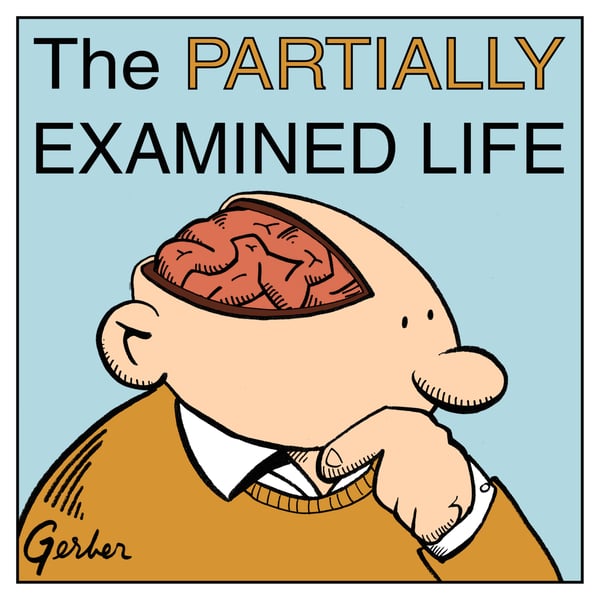Ep. 365: Scheler on Love (Part Two)
The Partially Examined Life Philosophy Podcast
Mark Linsenmayer
4.6 • 2.3K Ratings
🗓️ 28 April 2025
⏱️ 53 minutes
🧾️ Download transcript
Summary
We conclude our treatment of Max Scheler's The Nature of Sympathy (1922), getting further into the Part II of the book about love and hatred and grappling with the puzzles about what exactly it is we love about someone (the "personality").
Get more at partiallyexaminedlife.com. Visit partiallyexaminedlife.com/support to get ad-free episodes and tons of bonus discussion.
If you enjoy our podcast, check out Working Class History at workingclasshistory.com.
Transcript
Click on a timestamp to play from that location
| 0:00.0 | You're listening to Partiously Examined Life, episode 365, part two, continuing to discuss Max |
| 0:14.1 | Schellers and the nature of sympathy. We're now well into part two talking about love. Yeah, did we want to crank back as we look more |
| 0:25.0 | closely into the text itself to part one in there? I don't know. Was there anything in chapter |
| 0:31.5 | 11? Because we read chapter 11, the relationship of love and fellow feeling. Some of it is |
| 0:36.4 | kind of foreshadows what we get in more detail here. |
| 0:40.8 | But I think we've said enough now about love to make sense of what he's saying here. |
| 0:46.1 | I mean, one of the primary points right is that you can't derive love and hate from fellow feeling or in general from the concept of benevolence. |
| 0:58.2 | And I think one of the points he wants to make, it kind of, you know, it's kind of contra-utilitarianism, |
| 1:03.7 | is that where in benevolence we might be seeking a kind of benefit for an object, |
| 1:09.7 | especially a material benefit. We want to redistribute the |
| 1:12.8 | resources, for instance. Love isn't seeking any kind of material benefit. It's concerned |
| 1:19.4 | strictly with the personality in this technical sense. And he makes other points. This is where he |
| 1:26.1 | makes a point. You know, you can love things |
| 1:27.7 | like knowledge and God, but, you know, obviously you can't have benevolence towards knowledge |
| 1:34.1 | or God. That doesn't make sense. Benevolence involves superiority and can even be insulting |
| 1:40.4 | under certain conditions. I'm just looking for quotes that I picked out. |
| 1:45.6 | Page 142, we often have fellow feeling for someone we do not love. |
| 1:49.5 | In conveying our regrets to someone, for instance, there's no trace of love, nor is there |
| 1:54.2 | in our ordinary pity for him. |
| 1:56.7 | But even here, the stirrings of sympathy are based on love, a love which in these instances |
| 2:00.7 | relates either to a whole of which he is a part or member. But even here, the stirrings of sympathy are based on love, a love which in these instances relates |
| 2:01.2 | either to a whole of which he is a part or member, a family, a nation, or mankind, or else to a |
... |
Please login to see the full transcript.
Disclaimer: The podcast and artwork embedded on this page are from Mark Linsenmayer, and are the property of its owner and not affiliated with or endorsed by Tapesearch.
Generated transcripts are the property of Mark Linsenmayer and are distributed freely under the Fair Use doctrine. Transcripts generated by Tapesearch are not guaranteed to be accurate.
Copyright © Tapesearch 2025.

